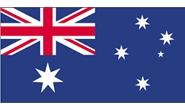Government/Policy

March 8, 2018
Australia PM: Tariffs to Increase California Building Costs
Written by Sandy Williams
Australia’s Prime Minister Malcolm Turnbull warned that the steel and aluminum tariffs planned by President Trump will have consequences for construction in California. Australian producer BlueScope sends about 300,000 metric tons of steel slabs per year to its Steelscape facilities in California and Washington where it is transformed into metallic-coated and pre-painted steel used in building applications. Steelscape manufactures about 446,000 metric tons of metal-coated steel and 332,000 ton of painted steel coils annually.
The consequence of imposing a tariff on Australian steel shipped to the West Coast would simply increase the cost of building in California, Turnbull told reporters in Sydney on Wednesday. “There is literally nothing to be gained by the United States … imposing a tariff.”
U.S. Rep. Jaime Herrera Beutler, representing southwest Washington, sent a letter to President Trump on Wednesday urging him to consider the negative impacts on Steelscape and its employees. “Despite its affiliation with a domestic steel manufacturing company in Ohio, Steelscape is one of several West Coast steel producers that rely on imports from the Pacific Rim because of the natural trade barriers of the Rocky Mountains,” Herrera Beutler wrote.
Shipping steel to Steelscape from the East Coast is impractical because of high freight costs. It is estimated that transporting steel by rail from the Midwest would cost $65 per ton more than bringing it in by ship from Australia.
During an economic speech, Turnbull said the signing of the 11-country Trans-Pacific Partnership agreement was recognition of the importance of open trade. “History teaches us that there are no winners in a trade war,” said Turnbill. “A trade war is a race to the bottom that makes us all poorer, leaves our citizens with less choice and fewer opportunities.”







